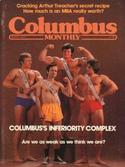I saw a couple of recent reposts containing very interesting material from several decades ago in Charlotte and Columbus.
The first is a 25 minute TV special from the 1960s looking at a proposal to issue bonds to fund urban renewal in downtown Charlotte. A few things struck me about this. read more »






















